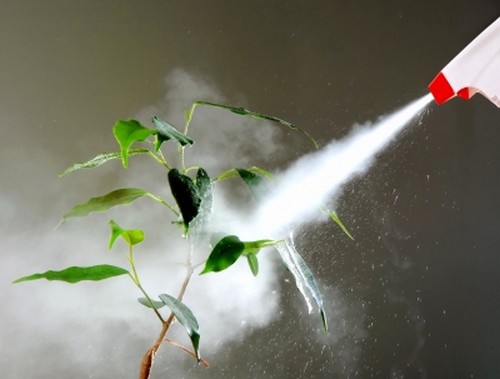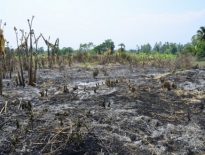Natural insecticide has gone in and out of favor in the past. At first, of course, that was all there was. Then, when chemical insecticides came around, people saw them as the wave of the future. They were all too anxious to try them. However, it may be that natural insecticide still has a place in agriculture and homes now and in the future.
Bacillus thurengiensis, Bt, has been developed as for use as a natural insecticide. It is made from a bacterium that works with the bacteria in an insects gut to poison the insect. It will need to be used in new ways.
Farmers will need to change natural insecticide usage from one to another to another. This will help to keep the insects from becoming resistant to any one natural insecticide. They will also need to introduce natural predator insects to help with the job. It will also help if they plant more than one crop. In the meantime, Bt has been so successful that biogeneticists have been working to put its genetic material inside of the vegetables instead of on them. This allows the vegetables to grow strong and insect-free. Corn has already been bioengineered this way. It is called “supercorn” and it is already in supermarkets.
Is this natural insecticide? It depends upon how you look at it. Many people think that, while it uses a natural insecticide as its basis, it is highly unnatural. They wouldn’t think of eating supercorn.
One natural insecticide may have a use outside of the insect-destroying business. Diguelin is a natural insecticide that has been used in South America and Africa. It has been discovered that it is effective in slowing or stopping the growth of lung cancer in humans. It is thought that it will have important implications in the treatment of certain types of lung cancer. Many countries in Asia, Latin America, and Africa are banding together to implement a new type of insect control. This is called Integrated Pest Management. Rather than use a natural insecticide made from a plant, a bacteria, or a mineral, IPM is based on using other insects.
These insects are natural predators of the harmful ones attacking crops. With the use of such methods, ordinary natural insecticide methods will likely be ignored in these areas, at least for awhile.
Plant terpenoids are being investigated for different uses in natural insecticide. Some of these substances can be used to repel unwanted insects and attract beneficial ones all at the same time. Molting can be prevented by use of certain plant-derived steroids.
Other plant terpenoids can be used to over-excite the nervous systems of insects. They can disrupt their mating habits and even make them sterile. The only problem with the development of these plant terpenoids is that companies are looking to make synthetic versions of them. They will no longer be natural insecticides.
Many people are concerned about the environment. They want to use natural insecticide to protect the safety of their food and the world around them. However the power of modern agribusiness is overtaking these people. If natural insecticide is to be a viable solution, changes have to be made.






